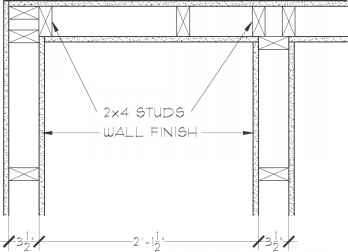
Henson Concrete Construction was founded by two men in Tallapoosa Georgia. The company is in existence for more then twenty years. They specialize in decorative concrete work, both in residential and commercial areas. They are a proven moneymaker and generate over fifteen thousand dollars each year.
It's not surprising, then, that the company was involved recently in a legal squabble against an adjacent contractor. The weather was not the only issue between the two companies. They also disagreed over who was responsible on the project's small trinkets. Although Henson won the case, Henson did have to pay out-of-pocket expenses. As a result, Henson's company took a huge hit to its bottom line. In reality, the project cost was more than half a million.
A recent study of the company revealed that it logged over fifty jobs in the past twelve months. This included an impressive tally of thirty-one scalable projects. Some of these projects have yet to be completed, while others are in the initial stages. This area has not seen much activity since the recession but it has not affected its quality of work. The company's stellar reputation and the quality of its subcontractors have earned it a place in the top tier small- to medium-sized contractors.
Henson's April firing of a contractor was one of the most memorable incidents. Davis Heating and Air was able to pay the former employee for his help in the cleanup and offer a discounted on the new project.

FAQ
Are there any ways I can prepare for negotiations before I go?
Yes!
There are many ways that you can prepare yourself for negotiation.
One way is to make the terms and condition of the agreement.
Is there any limit on how much money I can spend for the project?
No. No. However, you may be able to negotiate a lower price with the contractor.
What is the purpose behind the service agreement
A Service Agreement defines the terms by which a customer agrees that they will buy goods from your company. It also defines how you will provide those services to them for payment.
The most common form of this document is called a Sales Order Form. This is where the customer will indicate what products they are purchasing and what their prices are. Next, list any additional items in the order. This includes delivery costs, VAT and insurance. The last step is to specify when and how the order should arrive.
You may use a different document depending the nature of the transaction.
For example, if you are providing a service rather than selling a product, you may use an invoice instead.
A Purchase Order Form is what you would use to buy from someone else.
Include all information when creating a sales order form.
Remember: The buyer will understand your sales order form if it is more detailed.
What happens when one party refuses to take their side in a deal?
Failure to fulfill your obligations under the agreement can lead to the law allowing the other party to declare your promise null and sue you for damages. Damages include the amount owed plus interest, court costs, and legal fees.
Statistics
- Don't take their anger personally, they are mad about the situation 99% of the time. (activatemylicense.com)
- (v) Place or places of performance of the prime contract and first-tier subcontracts estimated at $10 million or more, if known. (acquisition.gov)
- (ii) Name, address, and telephone number of each proposed first-tier subcontractor with a proposed subcontract estimated at $10 million or more. (acquisition.gov)
- Reasonable late fees go up to 25% per year on unpaid sums. (lawdepot.com)
- Depending on the client's trustworthiness and financial stability, a deposit is usually 10 to 50% of the total contract amount. (lawdepot.com)
External Links
How To
What should a service arrangement include?
A Service Agreement (SA) is essential to any business relationship. It sets out what you expect from one another and how you intend to achieve these expectations. The SA also details when and where each party should fulfill its contractual obligations.
A successful SA must include these key elements:
-
The scope of both the work and the services required.
-
Information about payment terms, including the start and end dates for delivery of goods/services.
-
The project price must be agreed.
-
Any additional costs such as VAT etc.
-
Whether there is any other matter that should be discussed.
-
Who will be responsible if something goes wrong with the job?
-
How disputes will be settled
-
What happens when one party breaks the contract?
-
What happens when there is a disagreement?
-
When does the contract go into effect?
-
What happens when one of the parties doesn't perform?
-
How long do you have to pay invoices?
-
Who pays for expenses such as travel?
-
Where the money comes from.
-
What happens if a client changes his mind?
-
What happens if the supplier isn't there?
-
Who has access during construction to the site?
-
What happens if a customer cancels the contract?
-
What happens if the product is faulty.
-
What happens if a manufacturer refuses to provide parts?
-
What happens if the equipment is damaged?
-
What happens when the project takes longer to complete?
-
What happens if work isn’t completed in the timeframe agreed upon?
-
What happens if the final product isn't up to expectations?
-
What happens if the cost exceeds?
-
What happens to the materials if they are not delivered on-time?
-
What happens if the material arrives broken?
-
What happens if products do not meet the standards?
-
What happens if the job has to be canceled?
-
What happens if the business goes under?